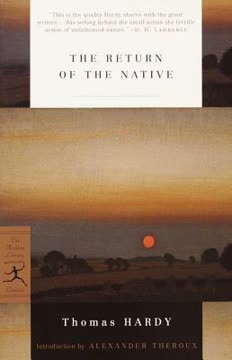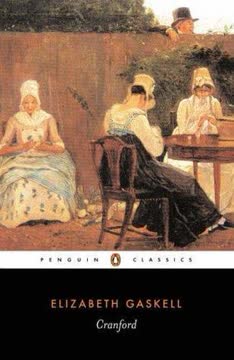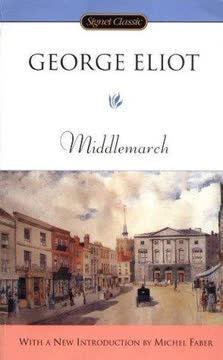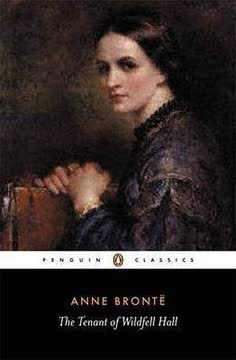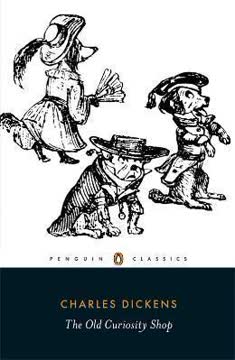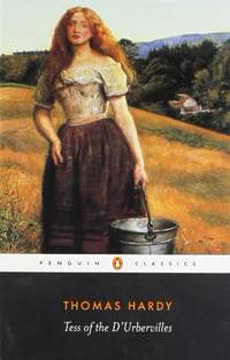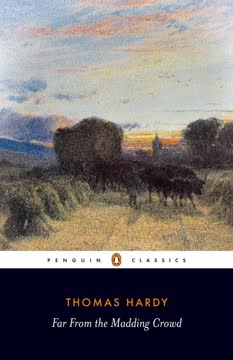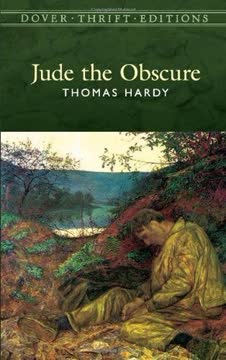Plot Summary
Egdon Heath's Enigmatic Allure
Egdon Heath is a vast, untamed landscape that exudes a timeless and haunting presence. Its dark, rolling hills and dense vegetation create an atmosphere of mystery and foreboding. The heath seems to possess a life of its own, influencing the lives of those who dwell upon it. It is a place where time stands still, and the natural world reigns supreme, casting a shadow over the human dramas that unfold within its bounds.
A Mysterious Stranger Arrives
Clym Yeobright, a native of Egdon Heath, returns home from Paris, where he has been living a life of sophistication and learning. His arrival is eagerly anticipated by his mother, Mrs. Yeobright, and his cousin Thomasin, who has recently faced a scandal involving her failed marriage to Damon Wildeve. Clym's return brings hope and excitement to the community, as he is seen as a man of promise and potential, capable of bringing change to the stagnant heath.
Eustacia's Yearning for Escape
Eustacia Vye, a striking and enigmatic young woman, feels trapped in the confines of Egdon Heath. She yearns for a life of excitement and adventure, far removed from the monotony of her rural existence. Eustacia's restless spirit and vivid imagination lead her to dream of escaping to a world where she can fulfill her desires and ambitions. Her longing for escape becomes intertwined with her fascination for Clym, whom she sees as a potential savior from her dreary life.
A Secret Meeting on the Heath
Eustacia and Damon Wildeve, Thomasin's former suitor, meet secretly on the heath. Their relationship is fraught with tension and unfulfilled desires, as Wildeve is torn between his feelings for Eustacia and his obligations to Thomasin. Eustacia, driven by her desire for excitement and change, is drawn to Wildeve's rebellious nature. Their clandestine meetings on the heath become a symbol of their shared longing for something beyond the ordinary.
The Mummers' Play and Eustacia's Plan
Eustacia devises a daring plan to see Clym Yeobright by disguising herself as a mummer in a local play. The mummers, a group of local performers, are preparing for their annual Christmas play, and Eustacia sees this as an opportunity to catch a glimpse of Clym. Her boldness and determination to break free from her constraints lead her to take on the role of the Turkish Knight, allowing her to enter the Yeobright household unnoticed.
A Dance of Hidden Desires
During the mummers' play, Eustacia finally sees Clym Yeobright. The dance that follows is a swirl of hidden desires and unspoken emotions. Eustacia is captivated by Clym's presence, and her heart is stirred by the possibility of a new beginning. However, the complexities of their respective lives and the expectations of those around them cast a shadow over their potential connection, leaving Eustacia to ponder the true nature of her feelings.
Eustacia's Dream and Disillusionment
Eustacia dreams of a fantastical world where her desires are fulfilled, and she is free from the constraints of her current life. The dream is vivid and enchanting, yet it leaves her with a sense of disillusionment upon waking. She realizes that her longing for escape and her fascination with Clym may be rooted in a deeper dissatisfaction with herself and her circumstances. This revelation forces Eustacia to confront the reality of her situation and the limitations of her dreams.
Eustacia's Unsettling Encounter
Eustacia Vye's life is disrupted when Mrs. Yeobright confronts her about a sum of money intended for Clym, which she suspects Eustacia received from Wildeve. The encounter is tense, with accusations flying and misunderstandings deepening the rift between Eustacia and her mother-in-law. Eustacia's pride and Mrs. Yeobright's protective instincts clash, leaving both women hurt and angry. This confrontation sets the stage for further discord in Eustacia's marriage to Clym, as she feels increasingly trapped and misunderstood.
Clym's Struggle and Eustacia's Despair
Clym Yeobright's determination to pursue a new life as a schoolmaster is thwarted by a severe eye condition, leaving him unable to read or work. Eustacia, who had hoped for a life of excitement and travel, is disillusioned by their humble existence. Her dreams of Paris fade as Clym's condition worsens, and she becomes increasingly despondent. Despite Clym's attempts to reassure her, Eustacia's dissatisfaction grows, and she begins to question the choices that led her to this point.
Wildeve's Dangerous Game
Damon Wildeve, still infatuated with Eustacia, engages in a dangerous game of chance and intrigue. His late-night visits to Alderworth and his attempts to communicate with Eustacia through secret signals reveal his persistent obsession. Wildeve's actions are not without consequence, as Diggory Venn, the reddleman, takes it upon himself to thwart Wildeve's advances and protect Eustacia's marriage. The tension between Wildeve's desires and Venn's interventions creates a volatile situation that threatens to unravel the lives of those involved.
Mrs. Yeobright's Painful Journey
Driven by a desire to mend the rift with her son, Mrs. Yeobright sets out on a difficult journey across the heath to visit Clym and Eustacia. The oppressive heat and her own emotional turmoil make the journey arduous, but she is determined to reach her destination. Her hope for reconciliation is tempered by the fear of rejection, and the journey becomes a metaphor for the emotional distance between her and her son. Mrs. Yeobright's struggle highlights the deep-seated tensions within the family and the challenges of bridging the gap between past grievances and future harmony.
Eustacia's Desperate Decision
Eustacia, feeling trapped and desperate, decides to leave Egdon Heath and her life with Clym. She plans to meet Wildeve and escape to a new life, hoping for excitement and freedom. However, her plans are fraught with uncertainty and danger. As she waits for Wildeve, the oppressive atmosphere of the heath mirrors her inner turmoil. Her decision to leave is a culmination of her dissatisfaction and longing for a life beyond the confines of her current existence.
The Tragic Meeting at the Weir
Clym, searching for Eustacia, arrives at the weir where a tragic accident unfolds. Eustacia, in her despair, has fallen into the water, and Wildeve jumps in to save her. Clym arrives just in time to witness the aftermath, but both Eustacia and Wildeve are beyond saving. The scene is a devastating climax to the tangled relationships and unfulfilled desires that have plagued the characters. Clym is left to grapple with the loss and the realization of his role in the tragedy.
Clym's Grief and New Purpose
Overwhelmed by grief and guilt over the deaths of Eustacia and his mother, Clym retreats into himself. He blames himself for their fates and struggles to find meaning in his life. Eventually, he finds solace in a new purpose: becoming an itinerant preacher. Through this vocation, Clym seeks redemption and a way to honor the memories of those he has lost. His journey towards healing is marked by a deep introspection and a desire to make amends.
Thomasin's New Beginning
In the wake of the tragedy, Thomasin finds herself a widow with a young child. Despite her grief, she is determined to build a new life for herself and her daughter. She eventually finds happiness with Diggory Venn, who has always been devoted to her. Their marriage represents a fresh start and a chance for Thomasin to find the stability and love she has longed for. Her resilience and strength are a testament to her character and the possibility of hope after loss.
Characters
Eustacia Vye
Eustacia Vye is a strikingly beautiful and enigmatic young woman who feels trapped in the confines of Egdon Heath. Her restless spirit and vivid imagination drive her to yearn for a life of excitement and adventure beyond the monotony of her rural existence. Eustacia's fascination with Clym Yeobright and her clandestine relationship with Damon Wildeve reflect her desire for change and fulfillment. Her character is marked by a complex interplay of longing, ambition, and disillusionment.
Clym Yeobright
Clym Yeobright is a native of Egdon Heath who returns home from Paris, where he has been living a life of sophistication and learning. He is seen as a man of promise and potential, capable of bringing change to the stagnant heath. Clym's thoughtful nature and idealistic vision set him apart from the other inhabitants of Egdon, and his return is eagerly anticipated by his mother and cousin. His presence becomes a catalyst for the unfolding drama on the heath.
Damon Wildeve
Damon Wildeve is a charming and conflicted man who is torn between his feelings for Eustacia Vye and his obligations to Thomasin Yeobright. His relationship with Eustacia is marked by tension and unfulfilled desires, as both are drawn to each other's rebellious nature. Wildeve's indecision and inability to commit fully to either woman create a web of complications and misunderstandings that drive the narrative forward.
Thomasin Yeobright
Thomasin Yeobright is a gentle and kind-hearted young woman who finds herself embroiled in a scandal involving her failed marriage to Damon Wildeve. Despite her misfortunes, Thomasin remains resilient and determined to find happiness. Her character embodies the themes of love, loyalty, and the struggle for personal dignity in the face of societal judgment. Thomasin's relationship with her cousin Clym and her aunt Mrs. Yeobright adds depth to her character and the story.
Mrs. Yeobright
Mrs. Yeobright is a proud and protective matriarch who is deeply concerned for the well-being of her son Clym and her niece Thomasin. Her strong-willed nature and sense of duty drive her to intervene in their lives, often with unintended consequences. Mrs. Yeobright's character is marked by a complex blend of love, pride, and a desire to uphold family honor, making her a pivotal figure in the unfolding drama on Egdon Heath.
Diggory Venn
Diggory Venn is a reddleman, a traveling salesman of red dye, who is deeply devoted to Thomasin Yeobright. Despite his unrequited love for her, Venn remains a loyal and resourceful ally, willing to go to great lengths to ensure her happiness. His character is marked by a quiet strength and determination, as well as a willingness to sacrifice his own desires for the sake of others. Venn's presence adds an element of mystery and intrigue to the story.
Plot Devices
Egdon Heath
Egdon Heath serves as a brooding and omnipresent backdrop to the narrative, influencing the lives and emotions of the characters who inhabit it. The heath's vast, untamed landscape creates an atmosphere of mystery and foreboding, reflecting the inner turmoil and desires of the characters. It is a place where time seems to stand still, and the natural world reigns supreme, casting a shadow over the human dramas that unfold within its bounds.
The Mummers' Play
The mummers' play, a traditional folk performance, serves as a catalyst for the revelation of hidden desires and emotions among the characters. Eustacia's decision to disguise herself as a mummer to see Clym Yeobright highlights her longing for escape and adventure. The play becomes a symbol of the characters' attempts to break free from societal constraints and pursue their true desires, setting the stage for the unfolding drama on Egdon Heath.
The Weir
The weir serves as a pivotal location in the narrative, representing the culmination of the characters' tangled relationships and unfulfilled desires. The tragic accident at the weir is a devastating climax that underscores the themes of fate and the consequences of human actions. It is a place where the characters' lives intersect in a moment of irreversible tragedy, highlighting the fragility of life and the impact of choices.
Analysis
"The Return of the Native" by Thomas Hardy is a profound exploration of human desires, the constraints of society, and the relentless passage of time. Through the haunting landscape of Egdon Heath, Hardy weaves a narrative that delves into the complexities of love, ambition, and the pursuit of happiness. The characters' struggles with their inner desires and societal expectations highlight the universal themes of longing and the consequences of choices. The novel serves as a poignant reminder of the fragility of human life and the enduring impact of our actions on ourselves and others. Hardy's masterful storytelling and rich character development create a timeless tale that resonates with readers, offering insights into the human condition and the search for meaning in an ever-changing world.
Last updated:
FAQ
Synopsis & Basic Details
What is The Return of the Native about?
- A Tale of Unfulfilled Desires: The Return of the Native centers on Clym Yeobright, who returns to his ancestral home on Egdon Heath from Paris with idealistic plans to become a schoolmaster. His arrival ignites a complex web of passions and conflicts among the heath's inhabitants, particularly the beautiful and restless Eustacia Vye, who yearns for a life of glamour and escape from the desolate heath.
- Love Triangles and Societal Constraints: The narrative explores the intertwined fates of Clym, Eustacia, Thomasin Yeobright (Clym's gentle cousin), and Damon Wildeve (Thomasin's fickle husband and Eustacia's former lover). Their romantic entanglements are constantly thwarted by personal ambitions, societal expectations, and the unyielding, almost sentient, landscape of Egdon Heath.
- The Heath as a Character: More than just a setting, Egdon Heath acts as a powerful, brooding character, symbolizing fate, isolation, and the unchanging nature of existence. It both shapes and reflects the characters' inner lives, ultimately playing a crucial role in their tragic destinies and the novel's exploration of human longing and disillusionment.
Why should I read The Return of the Native?
- Deep Psychological Insight: Thomas Hardy masterfully delves into the inner lives of his characters, exploring their complex motivations, desires, and flaws. Readers gain a profound understanding of human nature, particularly the struggle between individual aspirations and the forces of fate and environment. This psychological depth makes The Return of the Native a compelling read.
- Rich Symbolism and Atmosphere: The novel is renowned for its evocative descriptions of Egdon Heath, which functions as a powerful symbol of primal nature, isolation, and the indifference of the universe. Hardy's atmospheric prose creates a vivid, almost palpable sense of place that deeply impacts the characters and the reader.
- Tragic Yet Thought-Provoking Themes: The Return of the Native explores enduring themes such as the clash between nature and civilization, the pursuit of happiness, the destructive power of unfulfilled ambition, and the limitations of human will. Its tragic events offer a poignant commentary on the human condition, prompting reflection long after the final page.
What is the background of The Return of the Native?
- Victorian Era Rural Life: Set between 1840 and 1850, the novel vividly portrays rural life in Wessex, England, during the Victorian era. This period saw significant social and economic changes, but Egdon Heath remains largely untouched, representing a resistance to modernity and a clinging to ancient customs and superstitions. The contrast between traditional rural existence and the allure of urban sophistication (like Paris or Budmouth) is central to the characters' conflicts.
- Hardy's Wessex Novels: The Return of the Native is one of Thomas Hardy's most celebrated "Wessex novels," a series of works set in a fictionalized version of Dorset, England. Hardy drew heavily on the landscape, dialect, and folklore of his native region, imbuing his stories with a strong sense of place and a deep connection to the land. The heath itself is a composite of several real-life Dorset heaths.
- Philosophical Underpinnings: Hardy's writing is often characterized by a deterministic worldview, where characters are often victims of fate, circumstance, and their own flawed natures. The novel reflects contemporary philosophical debates on free will versus determinism, and the impact of environment on human destiny, often with a pessimistic outlook on human happiness.
What are the most memorable quotes in The Return of the Native?
- "A Saturday afternoon in November was approaching the time of twilight, and the vast tract of unenclosed wild known as Egdon Heath embrowned itself moment by moment.": This opening line immediately establishes the dominant presence of Egdon Heath, setting a somber, atmospheric tone that foreshadows the novel's tragic events. It highlights the heath's role as a central, almost living, entity in the story.
- "To be loved to madness—such was her great desire. Love was to her the one cordial which could drive away the eating loneliness of her days.": This quote encapsulates Eustacia Vye's fervent longing for passionate love and escape, revealing the depth of her emotional needs and her desperate search for fulfillment. It defines her character and foreshadows the intensity of her romantic pursuits.
- "The truth seems to be that a long line of disillusive centuries has permanently displaced the Hellenic idea of life, or whatever it may be called. What the Greeks only suspected we know well; what their Aeschylus imagined our nursery children feel.": This profound philosophical statement from the narrator reflects Clym Yeobright's disillusionment with traditional notions of happiness and progress. It speaks to the novel's broader themes of existential weariness and the shift in human consciousness from ancient ideals to modern anxieties.
What writing style, narrative choices, and literary techniques does Thomas Hardy use?
- Omniscient and Philosophical Narration: Hardy employs a highly omniscient narrator who not only recounts events but also frequently interjects with philosophical reflections, psychological analyses, and historical context. This narrative voice often adopts a detached, almost cosmic perspective, emphasizing the insignificance of human struggles against the backdrop of vast, indifferent nature, as seen in the extensive descriptions of Egdon Heath.
- Detailed Naturalism and Symbolism: Hardy's style is characterized by meticulous, often poetic, descriptions of the natural world, particularly Egdon Heath. These descriptions are not merely decorative; they are deeply symbolic, reflecting the characters' inner states, foreshadowing events, and embodying thematic concerns like fate, isolation, and the primitive. For example, the heath's "swarthy monotony" mirrors Eustacia's despair.
- Tragic Irony and Determinism: A pervasive sense of tragic irony underscores the narrative, where characters' best intentions often lead to their downfall, and fate seems to conspire against their happiness. Hardy frequently uses foreshadowing and dramatic irony to highlight the characters' limited agency, suggesting a deterministic universe where human will is often powerless against larger forces.
Hidden Details & Subtle Connections
What are some minor details that add significant meaning?
- Christian Cantle's "No Moon, No Man" Superstition: Grandfer Cantle's son, Christian, is described as being born "no moon," leading to the local saying, "'No moon, no man.' 'Tis one of the truest sayings ever spit out. The boy never comes to anything that's born at new moon." This seemingly throwaway detail about Christian's birth and his subsequent social awkwardness subtly introduces the pervasive influence of superstition and fatalism on Egdon Heath, hinting at how such beliefs can shape a person's self-perception and destiny.
- The Inn Sign of "The Quiet Woman": The inn where Wildeve resides bears a gruesome sign depicting "a matron carrying her head under her arm, beneath which gruesome design was written the couplet... 'SINCE THE WOMAN'S QUIET LET NO MAN BREED A RIOT.'" This macabre detail is a dark foreshadowing of the tragic fates awaiting the women in the story, particularly Eustacia, whose passionate nature ultimately leads to her demise. It also subtly comments on societal expectations for female submission.
- Clym's Eye Ailment and the Moth: Clym's eye inflammation, caused by his intense night studies, is a physical manifestation of his intellectual ambition clashing with the harsh realities of Egdon. Later, Wildeve uses a moth flying into a candle flame as a signal to Eustacia. This seemingly minor detail connects to Clym's affliction, symbolizing the destructive allure of passion and ambition, and foreshadowing the fatal attraction that draws Eustacia to her doom, much like the moth to the flame.
What are some subtle foreshadowing and callbacks?
- Eustacia's Hourglass and Telescope: Early in the novel, Eustacia is often seen with her grandmother's hourglass and grandfather's telescope. The hourglass, which she watches "time's gradual glide away," subtly foreshadows her preoccupation with the fleeting nature of life and her desperate desire to seize happiness before it's gone. The telescope, used to spy on Wildeve, foreshadows her active, often manipulative, role in her own destiny, and her yearning for a wider world beyond Egdon.
- The Bonfires as Signals and Omens: The bonfires lit on Guy Fawkes Night serve as a recurring motif. Eustacia lights one as a signal for Wildeve, recalling an earlier, similar signal. This callback emphasizes the cyclical nature of their illicit affair and Eustacia's persistent longing for Wildeve, even after her marriage to Clym. The fires also symbolize fleeting passion and destructive forces, foreshadowing the eventual conflagration of their lives.
- The Heath-Croppers' Behavior: The wild ponies, or "heath-croppers," are frequently mentioned. Their untamed nature and tendency to stray into cultivated lands subtly mirror the characters' own wild impulses and their inability to conform to societal norms. When Wildeve is tripped by tied-together heath tufts, it's a direct intervention by Venn, but also a symbolic representation of the heath itself resisting Wildeve's "errant tastes," foreshadowing the heath's ultimate role in the characters' fates.
What are some unexpected character connections?
- Diggory Venn's Unseen Influence: Diggory Venn, the reddleman, initially appears as a peripheral figure, but his actions subtly yet profoundly influence the main characters' lives. His unrequited love for Thomasin drives him to protect her, leading him to intervene in Wildeve's affairs and even to act as a matchmaker for Thomasin and Wildeve. His presence as an "invisible guardian" connects him to all major characters, often without their knowledge, making him a silent orchestrator of events.
- Charley's Unspoken Devotion to Eustacia: The young stable lad, Charley, develops a deep, almost worshipful, affection for Eustacia. His willingness to participate in her mumming disguise and his later act of hiding her pistols to prevent her suicide reveal a profound, selfless devotion that contrasts sharply with the more self-serving loves of Wildeve and Clym. This connection highlights Eustacia's captivating allure and the diverse ways she impacts those around her, even those she barely acknowledges.
- Mrs. Yeobright's Unrecognized Intuition: Despite her seemingly rigid and conventional nature, Mrs. Yeobright possesses a keen, almost intuitive understanding of character and future events. Her initial disapproval of Wildeve and her later misgivings about Eustacia prove tragically accurate. Her "singular insight into life, considering that she had never mixed with it," connects her to the deeper, primal wisdom of the heath, making her a Cassandra-like figure whose warnings go unheeded.
Who are the most significant supporting characters?
- Diggory Venn, the Reddleman: Diggory Venn is arguably the most significant supporting character, acting as a moral compass and a silent guardian. His distinctive red appearance makes him an outsider, yet he is deeply embedded in the heath's life. His unwavering love for Thomasin drives much of the plot, leading him to make sacrifices and strategic interventions that directly impact the fates of Eustacia, Clym, and Wildeve. His transformation from reddleman to dairyman symbolizes his eventual integration and reward.
- Grandfer Cantle: Grandfer Cantle, with his jovial yet often inappropriate pronouncements, serves as a voice of traditional Egdon life and a source of comic relief. His anecdotes and songs provide historical and cultural context, grounding the narrative in the heath's ancient customs. He also inadvertently reveals crucial information through his garrulous nature, highlighting the pervasive gossip and interconnectedness of the small community.
- Susan Nunsuch: Susan Nunsuch embodies the superstitious and darker aspects of Egdon Heath's folk culture. Her belief in Eustacia as a witch and her subsequent act of pricking Eustacia with a needle illustrate the destructive power of fear and ignorance. Her character highlights the clash between modern sensibilities and ancient beliefs, and her actions directly contribute to the tragic chain of events.
Psychological, Emotional, & Relational Analysis
What are some unspoken motivations of the characters?
- Eustacia's Fear of Mediocrity: Beyond her explicit desire for a glamorous life in Paris, Eustacia's deepest unspoken motivation is a profound fear of mediocrity and insignificance. Her passionate nature and striking beauty make her feel destined for something grander than Egdon Heath can offer. This fear drives her reckless choices, her pursuit of Clym (initially seen as a "visitant from a gay world"), and her inability to find contentment in a simple life, ultimately leading to her tragic end.
- Clym's Subconscious Desire for Redemption: While Clym explicitly states his desire to educate the heathfolk, a deeper, unspoken motivation seems to be a form of self-punishment or redemption. His rejection of the diamond trade and his embrace of a humble, self-sacrificing life on the heath can be interpreted as an atonement for his past "effeminate" existence in Paris and a subconscious attempt to reconnect with a more authentic, perhaps even ascetic, self. This drive is intensified by his later guilt over his mother's death.
- Wildeve's Need for Constant Validation: Damon Wildeve's fickle affections and his tendency to pursue women who are difficult to obtain stem from an unspoken need for constant validation. He is drawn to Eustacia precisely because she is elusive and challenging, and his interest wanes once she is "secure." His gambling, too, reflects this need for excitement and the thrill of the chase, rather than a genuine desire for wealth, as he is "weary of that offered" and "care for the remote."
What psychological complexities do the characters exhibit?
- Eustacia's Epicurean Sensuousness vs. Intellectual Apathy: Eustacia is a complex blend of intense sensuousness and intellectual apathy. She craves "music, poetry, passion, war, and all the beating and pulsing that are going on in the great arteries of the world," yet she shows little interest in Clym's intellectual pursuits or the practicalities of life. Her "pagan eyes" and "flamelike" soul suggest a primal, almost animalistic, connection to emotion, but her mind struggles with the "chastened sublimity" of the heath, leading to profound depression and a sense of being "banished."
- Clym's Idealism vs. Practicality: Clym Yeobright embodies the psychological complexity of an idealist struggling with practical realities. His vision of educating the heathfolk is noble, but his "well-proportioned mind" is also "unfortunate" because "the rural world was not ripe for him." His intellectual pursuits lead to physical blindness, symbolizing the tragic irony of his efforts. He is "permeated with [the heath's] scenes, with its substance, and with its odours," yet his Parisian experiences have instilled in him a desire for progress that clashes with the heath's ancient permanence.
- Mrs. Yeobright's Pride and Possessiveness: Mrs. Yeobright's character is marked by a fierce pride and a possessive love for her son, Clym. Her "superior communicative power" and "estranged mien" reveal a woman who feels herself above her neighbors, yet her actions are often driven by a deep-seated fear of losing her son and her family's respectability. Her inability to compromise, particularly regarding Eustacia, stems from a rigid moral code and a desire to control outcomes, ultimately leading to her tragic isolation and death.
What are the major emotional turning points?
- Eustacia's "Queen of Night" Revelation: The chapter "Queen of Night" is a major emotional turning point for Eustacia, as it fully reveals her inner world, her "passions and instincts which make a model goddess," and her desperate longing for love and escape from Egdon Heath. Her prayer, "O deliver my heart from this fearful gloom and loneliness; send me great love from somewhere, else I shall die," marks the intensity of her emotional state and sets the stage for her subsequent actions and tragic fate.
- Clym's Decision to Become a Furze-Cutter: Clym's declaration, "I am going to be a furze- and turf-cutter," is a devastating emotional turning point for Eustacia and a significant one for Clym. For Eustacia, it shatters her dream of Paris and confirms her "blasting effect upon her own life." For Clym, it represents a stoic acceptance of his physical limitations and a commitment to his humble ideals, even if it means sacrificing his wife's happiness. This moment highlights the irreconcilable differences in their aspirations.
- Mrs. Yeobright's Rejection at Alderworth: Mrs. Yeobright's journey to Alderworth to reconcile with Clym and Eustacia, only to be turned away, is a pivotal emotional turning point. Her "physical and emotional" exertions lead to her death, directly caused by the adder bite but exacerbated by her heartbreak. This event unleashes a cascade of guilt and recrimination, profoundly impacting Clym and Eustacia, and setting the stage for the novel's tragic climax.
How do relationship dynamics evolve?
- Eustacia and Wildeve: From Passion to Resentment: Their relationship begins with intense, clandestine passion, fueled by shared dissatisfaction with Egdon. Wildeve is drawn to Eustacia's exotic beauty, and she to his "lady-killing career." However, as Wildeve marries Thomasin and Eustacia marries Clym, their dynamic shifts to a complex mix of lingering attraction, resentment, and a desire for what is forbidden. Wildeve's "old longing for Eustacia had reappeared... mainly because he had discovered that it was another man's intention to possess her," illustrating his fickle nature and the destructive cycle of their connection.
- Clym and Mrs. Yeobright: From Devotion to Estrangement: Initially, Clym and his mother share a deep, if undemonstrative, bond. Mrs. Yeobright's life is "lived only for him." However, Clym's return from Paris with his radical ideas and his choice to marry Eustacia creates an irreparable "breach." Their relationship devolves into "steady opposition and persistence in going wrong," culminating in Mrs. Yeobright's tragic death, which Clym blames himself for, highlighting the destructive power of unheeded maternal love and filial disobedience.
- Thomasin and Diggory Venn: From Unrequited Love to Steadfast Partnership: Diggory Venn's love for Thomasin is initially unrequited, as she is infatuated with Wildeve. Despite her rejection, Venn remains her loyal protector, subtly intervening in her life. After Wildeve's death, their relationship slowly evolves from one of quiet devotion and gratitude to a stable, loving partnership. Thomasin's eventual acceptance of Venn represents a shift from romantic idealism to a more practical, enduring form of happiness, grounded in mutual respect and kindness.
Interpretation & Debate
Which parts of the story remain ambiguous or open-ended?
- The True Nature of Eustacia's Love for Clym: While Eustacia claims to love Clym, the narrative often suggests her affection is intertwined with her desire for escape and a more glamorous life. Her confession, "I married him because I loved him, but I won't say that I didn't love him partly because I thought I saw a promise of that life in him," leaves the true depth and purity of her love ambiguous. Readers are left to debate whether she genuinely loved Clym for himself or primarily as a means to an end, a "visitant from a gay world."
- The Extent of Egdon Heath's Sentience: Hardy frequently personifies Egdon Heath, describing it as "a near relation of night," "await[ing] something," and having a "lonely face, suggesting tragical possibilities." The narrative leaves it open to interpretation whether the heath is merely a powerful backdrop reflecting human emotions, or if it possesses a genuine, almost malevolent, sentience that actively influences the characters' fates. This ambiguity enhances the novel's fatalistic atmosphere.
- The "Accident" of Mrs. Yeobright's Death: While the immediate cause of Mrs. Yeobright's death is an adder bite, the circumstances surrounding it—her exhaustion, her emotional distress from [
Review Summary
The Return of the Native is praised for its vivid descriptions of Egdon Heath and complex characters, particularly Eustacia Vye. Readers appreciate Hardy's poetic prose and exploration of themes like fate, societal expectations, and the clash between tradition and modernity. The novel's tragic elements and melodramatic plot are noted, with some finding it more accessible than other Hardy works. Alan Rickman's audiobook narration is highly regarded. While some find the pacing slow initially, many consider it a rewarding read that showcases Hardy's masterful storytelling and character development.
Similar Books
Download PDF
Download EPUB
.epub digital book format is ideal for reading ebooks on phones, tablets, and e-readers.
